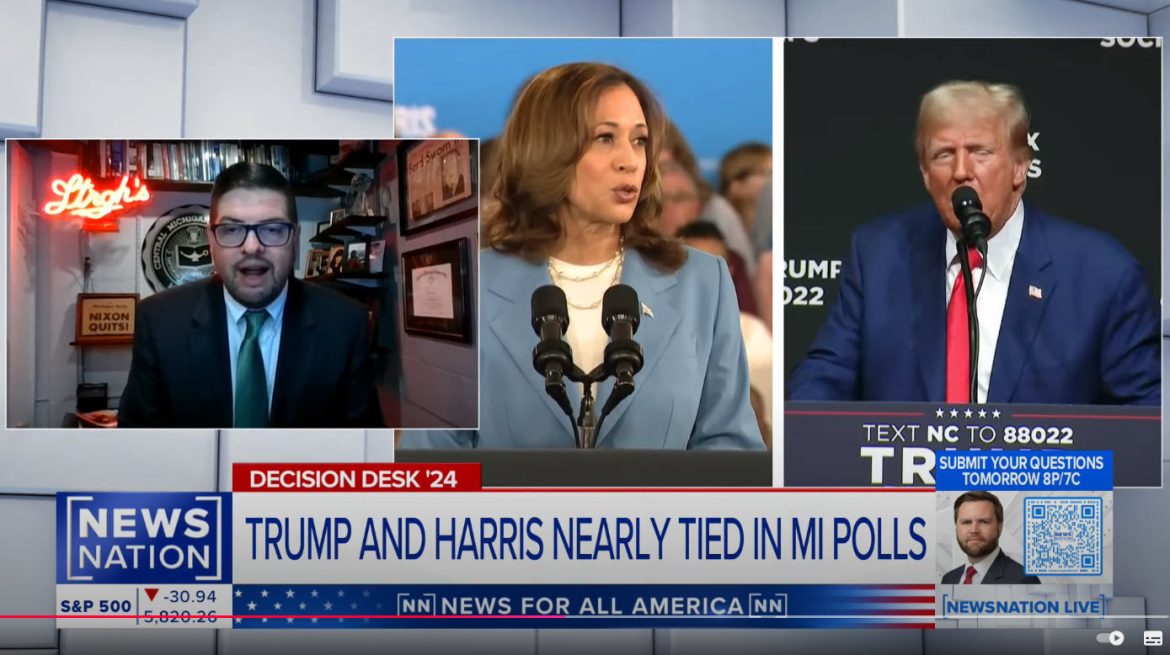With just 12 days remaining before the 2024 U.S. presidential election, the campaign trail is heating up as Vice President Kamala Harris and former President Donald Trump intensify their efforts to sway voters in key battleground states. Both candidates are packing their schedules with rallies, town halls, and public appearances, signaling the final sprint toward what is shaping up to be a fiercely contested race.
Trump Focuses on Battleground States
Former President Trump, aiming to reclaim the White House, is zeroing in on critical battleground states. Today, he is set to hold a town hall in Georgia, a state that has proven pivotal in past elections. Later this evening, he will host a rally where his message of economic renewal and border security will likely resonate with his base. Trump’s focus on Georgia is part of a broader strategy to secure electoral votes from states that could swing either way on Election Day.
Meanwhile, Trump’s running mate, Senator JD Vance, is campaigning in Nevada. Vance will make appearances in Las Vegas and Reno, focusing on energizing Republican voters in the Silver State. Nevada, another key battleground, could play a decisive role in determining the election outcome, and Vance’s presence is seen as crucial to rallying support in these final days.
Harris Campaigns in Pennsylvania as Walz Heads to Minnesota
Vice President Kamala Harris, the Democratic nominee, is also making her presence felt in key states. Today, Harris will be in Pennsylvania for a town hall hosted by CNN. Pennsylvania, a state known for its swing status, has been a focal point of both campaigns. Harris is expected to highlight her administration’s accomplishments over the past four years, including economic recovery efforts and healthcare reform, while outlining her vision for a second term.
Tim Walz, Harris’ running mate and the current governor of Minnesota, will be campaigning in his home state before heading to Kentucky for a campaign reception later in the evening. Walz is seen as a critical asset in energizing Democratic voters, especially in states where the race remains competitive.
Political Divides Spark Neighborhood Tensions
As the election draws closer, political tensions are not only rising on the campaign trail but also in everyday life. A new survey conducted by real estate company Redfin reveals that nearly one in five Americans has had a political disagreement with a neighbor. The survey highlights how politics is affecting relationships within communities, with men more likely than women to report having argued over political matters.
According to the survey, over 27 percent of men have had disagreements with their neighbors, compared to just under 14 percent of women. Younger generations are particularly prone to these confrontations, with more than a quarter of Gen Z and Millennials admitting to arguing with neighbors about politics. In contrast, less than 15 percent of Gen X and Baby Boomers reported such conflicts.
These findings reflect the growing polarization in American society, where political disagreements have increasingly infiltrated personal spaces and neighborhood dynamics.
China’s View on the U.S. Election
As the U.S. election gains global attention, many are curious about how foreign powers view the potential outcomes. In China, officials are steering clear of expressing overt preferences for the U.S. presidential race. However, experts believe that Beijing may prefer the stability and predictability of a Kamala Harris administration.
Jia Qingguo, the former dean of Peking University, told NBC News that while China is cautious about being accused of election interference, the Chinese government is likely wary of a second Trump presidency. Trump’s trade policies and hardline stance toward China during his first term led to significant tensions between the two nations, and there is concern that his return to power could rekindle those confrontations.
China is keen on avoiding further economic disruption and political conflict with the U.S., and Harris is seen as a more stable and predictable partner on the global stage. Still, Chinese officials are treading carefully, aware that any perceived involvement in the U.S. election could lead to accusations of interference.
As the election approaches, both the U.S. and the world are watching closely, with major decisions that could reshape international relations hanging in the balance.



